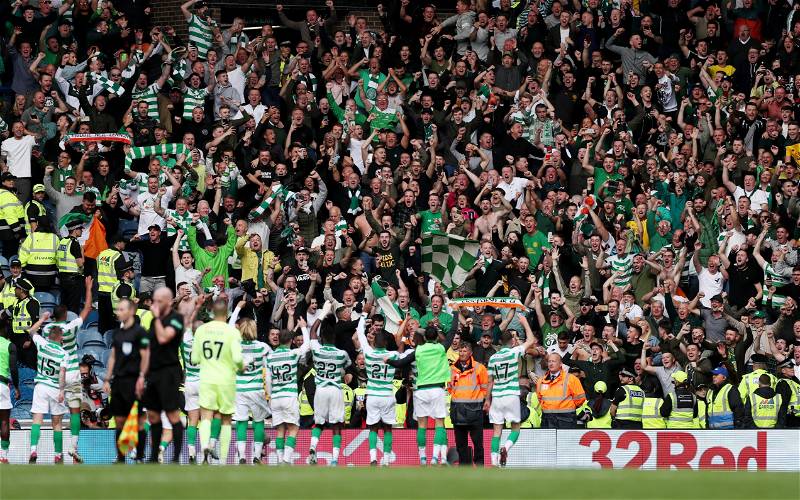Amidst a weekend where Celtic triumphed over Livingston with a convincing 3-0 win, solidifying their position as frontrunners heading into the much-anticipated Glasgow derby, a noteworthy subplot unfolded courtesy of BBC pundit Tom English.
While Celtic’s performance showcased a display of mastery in maintaining pressure and earning crucial points in the title race, English chose to draw attention to a different facet of the matchday narrative.
English candidly expressed his disappointment at a segment of the Celtic fanbase, shedding light on a long-standing issue that resonates not only within Celtic but echoes broader concerns within the world of football. Following Celtic’s first goal against Livingston, a subset of supporters opted to chant songs imbued with pro-IRA sentiments, prompting English to voice his apprehensions through his platform. “Celtic open the scoring against bottom-placed Livingston. Celtic supporters respond by singing about the IRA…” English highlighted on X.
Anticipating potential counterarguments with a preemptive, “Cue ‘WHAT ABOUT THEM!!!'”, English acknowledged the multifaceted nature of the matter and the passionate responses it evokes. Yet, he underscored the importance of emphasizing the overarching yearning for peace, a sentiment shared by many, including former members of the IRA themselves. Through his commentary, English aimed not only to critique but also to ponder the actions of a minority within the fanbase, probing the appropriateness of their choice of commemoration.
“I understand that this represents a very small fraction of the overall Celtic support, but this percentage becomes more pronounced away from home. To score a goal and commemorate it by singing about a conflict in a region where the vast majority seek peace, including numerous ex-IRA members, is questionable.”
Unraveling the reasons behind why Celtic fans might engage in singing IRA-related songs delves into a intricate tapestry interwoven with history, politics, and identity. It all harks back to a deep-rooted sense of solidarity with the Irish nationalist cause, a sentiment deeply ingrained in Celtic’s inception. When Brother Walfrid founded the club in 1887, it transcended mere football; it symbolized the embodiment of Irish Catholic heritage in Scotland.
For many supporters, Celtic transcends being solely a football club—it embodies a reflection of their community’s resilience and aspirations. Singing these songs serves as a channel for them to embrace and pay homage to their proud Irish identity while commemorating the struggle for independence.
It fosters a bond with a cause intricately intertwined with their lineage. In this context, football matches transcend mere competitions; they burgeon into platforms for showcasing robust communal ties and historical narratives.
Nevertheless, this tradition is not devoid of controversies, notably considering the tumultuous history of The Troubles and its enduring repercussions on victims and affected communities. While some acknowledge the significance of preserving cultural memory and identity, the potential of these songs to rekindle past conflicts or stoke division remains palpable.
Therefore, grasping the tradition of singing IRA songs at Celtic matches involves striking a delicate balance—acknowledging the freedom to embrace one’s cultural roots while also weighing the broader implications for harmony and solidarity in a region marked by historical tensions.
The appropriateness of featuring such songs in today’s football atmosphere remains a subject of active discussion.
The match day commenced with the Green Brigade and Celtic Ultras unveiling a massive tifo across the stadium in honor of the Easter Rising.
